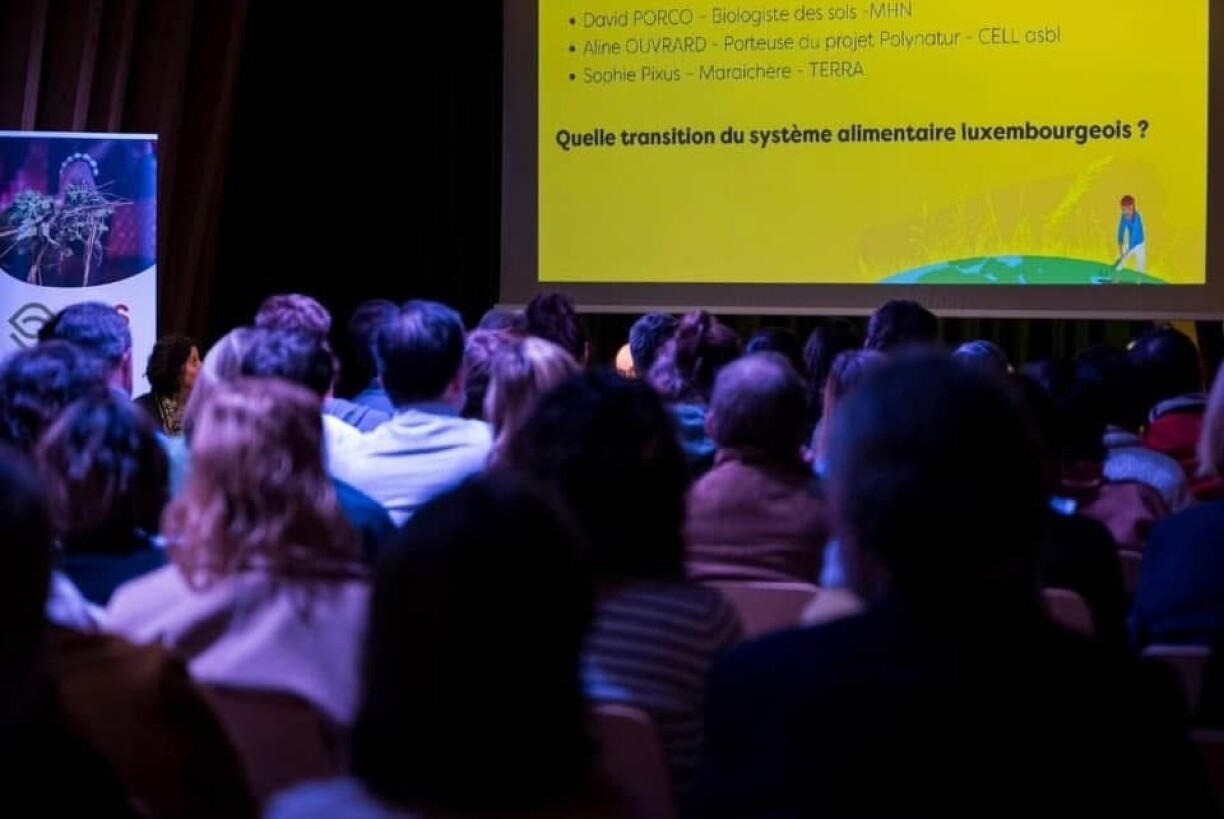
Through eight documentaries, the festival invites its audiences to consider urgent issues in the agricultural sector, including biodiversity, health, social justice, animal welfare, water scarcity, or intensive farming. Opening tonight and running until 15 November, the film festival already has 35 screenings planned.
The idea for AlimenTERRE (a French word-play combining “nutritional” and “earth”) comes from SOS Farm’s Belgian counterpart, Humundi, who have been running the festival for over a decade. Their inspiration in turn came from the French NGO CFSI over 20 years ago, now held in countries as far as Burkina Faso, Senegal, and Canada.
Considering SOS Faim’s focus on raising awareness and doing advocacy work in the Global South, it made perfect sense to bring the format to Luxembourg, explains Katie Eitler, the festival’s coordinator. SOS Faim not only supports local organisations that help organic farmers on the ground, but also hopes to inform people in industrial countries to understand how their food choices affect the rest of the world.
Last year’s edition mainly served to test the waters, though this time, SOS Faim is mostly handling the screening rights and coordination. Partner organisations, schools, muncipalities, and companies are invited and supported with hosting their own events. It’s up to each partner to focus on a niche issue or keep things broad, hence the film selection. “We wanted a wide range of films that convey our message: that our agricultural system is at the end of its utility. It’s become an inefficient model that creates suffering around the world.”
While one of the films focuses on local farming in the Grand Duchy, the overall programme looks far beyond its borders. Take Milked (2022), for instance, which explores New Zealand’s dairy industry.
“We chose it because it mirrors the European context”, Eitler notes. “This film highlights how milk is commodified in our industries through subsidies that create an artificial demand for milk. Issues they face, such as climate change or animal cruelty, are also issues we face here.”
Each screening is followed by a panel discussion, lecture, or interactive activity that encourages viewers to turn reflection into action. “It’s about making people conscious of the issues and supporting them in using that awareness in everyday life.”
True to its theme, every event wraps up with local, seasonal, and mostly plant-based finger food. “We want to show that eating sustainably doesn’t compromise on eating well... quite the opposite”, Eitler adds.
Importantly, the programme also has foreseen a special screening for younger audiences: “Children are the change-makers of the future, after all.”